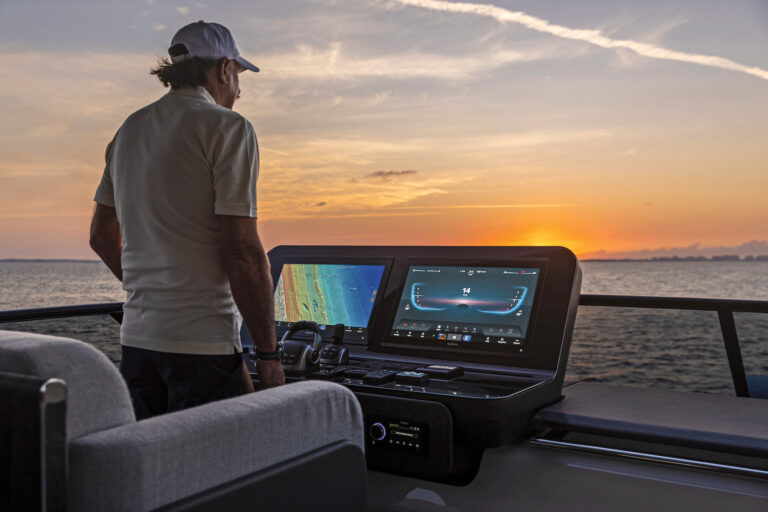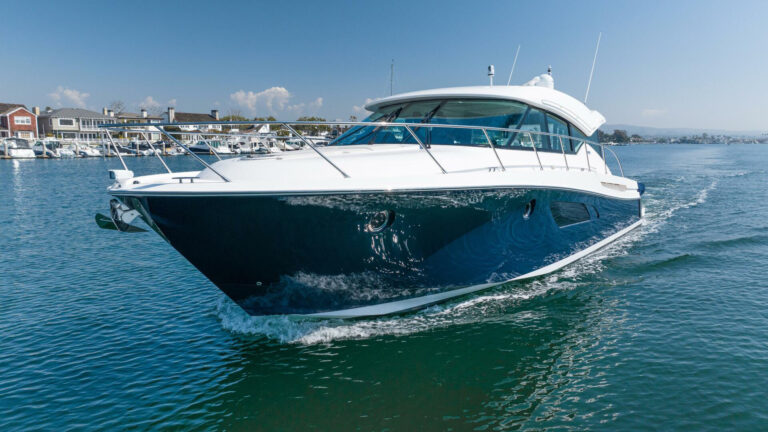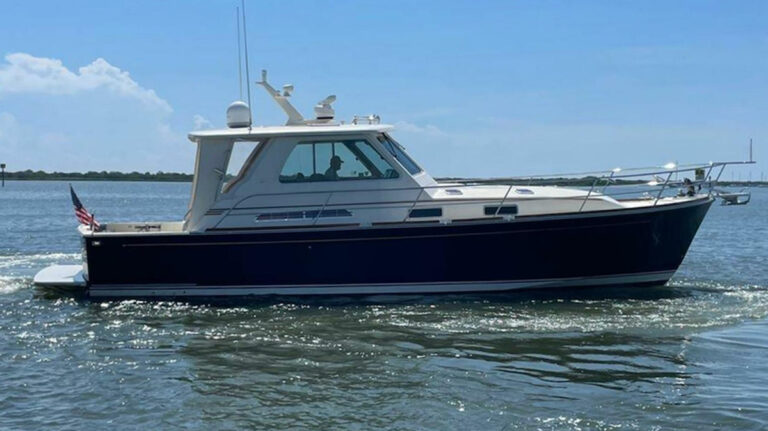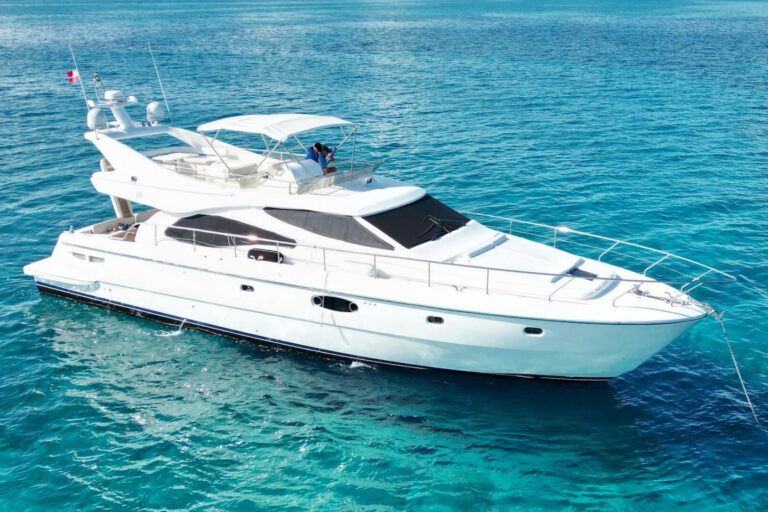It’s seven o’clock Saturday morning. As I drift into consciousness, my brain is analyzing the pounding at my front door that interrupted a glorious dream. The source of the irritation is not the lingering effect of the cheap Italian wine I’m fond of, but a whining guy who has torn my advertisement from the pages of a regional used-boat rag.
“Anybody home? I’m here to look at the boat.”
My “customer” is ready to buy, and I’m standing in my skivvies yelling at the door.
“Stand by, pal. I’ll be there in a second.”
As we walk the dock, I’m thinking I’ve seen this guy before, but I can’t place him. He is on the boat poking around before I have a chance to suggest doing so, and after a few moments he emerges from the bilge.
“That’s not original upholstery, and the layout is undesirable,” he says. “I’ll give you sixty grand. Cash.”
Bingo, my muddled mind clears. This fellow is not an aspiring enthusiast looking for a ride. He’s the grim reaper-a wholesaler.
In light of such experiences and a brief stint as the proprietor of a yacht brokerage, I find it amusing that so many folks I yarn with on the dock think yacht brokers collect generous commissions for doing little more than talking on the phone and reading magazines. There is far more involved in buying and selling boats, and I can tell you from experience that a knowledgeable yacht broker can save all parties aggravation and dollars.
Aside from a mastery of the artistic aspect of sales, a good broker will have a current knowledge of your boat and the market in which it resides. Regional markets differ, and features, outfitting and condition influence value in a variety of ways. An appraisal of your boat and the history of recent sales of similar boats should serve as a guide for setting price.
The old saw that you can sell almost anything if the price is right does apply to boats. This message, however, is often lost to sellers who are still passionate about their investment. Yes, there is a “posterior for every seat, however, waiting for that one in a million that fits yours can be time consuming and expensive. If you list a boat with a good broker who markets it properly, it will sell when it is priced appropriately considering its features, its condition, the market cycle and the economy. Most folks who sell their own boats adopt the Ernest and Julio approach: no deal before its time. They typically pass on the strongest offer early and accept a weak offer later in desperation.
Weeding out qualified buyers is not simply a matter of quantifying one’s investment in wrist-ware. There are plenty of folks with $10,000 watches, land in Idaho, vintage car collections and precious stones who cannot afford boats. Client qualification is an art all brokers practice and only the best master. Those who peddle their own boats often spend the bulk of their time entertaining folks who are not ready, financially or emotionally, for purchase.
While we all love to chat about our boats and take joy rides, a broker suffers the missed appointments and insists on a purchase agreement prior to a sea trial and a survey. In the negotiation that follows, a broker mediates any issues that may arise and handles the closing. The best brokers also serve the buyer after the sale, which means your phone will not ring.
You can have the wholesalers, the joy riders and the no-shows. The next time I cull the Coyle fleet, I intend to call a professional and sleep in.









